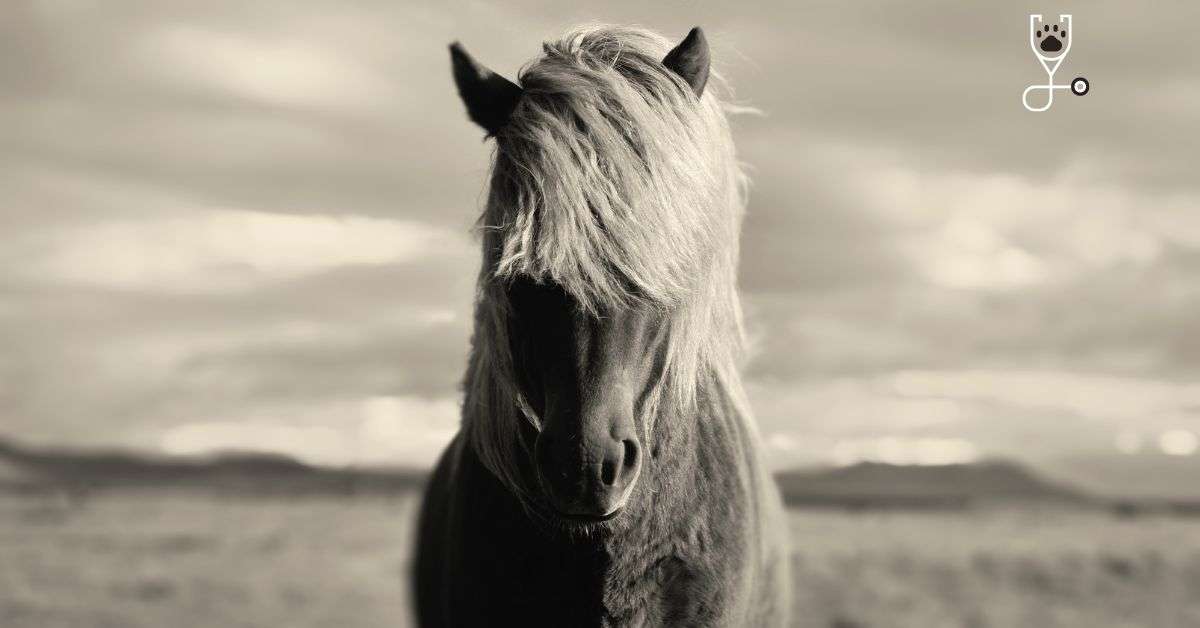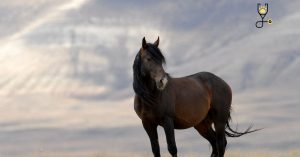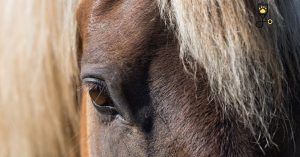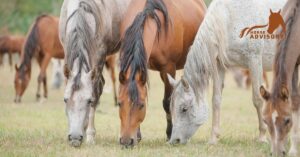Are you new to horseback riding? Do you find yourself struggling to calm your nervous horse during your first few rides together? If so, don’t worry – you’re not alone! In this blog post, we’ll discuss some tips and tricks for calming a nervous horse. So, what are you waiting for? Read on for helpful advice!
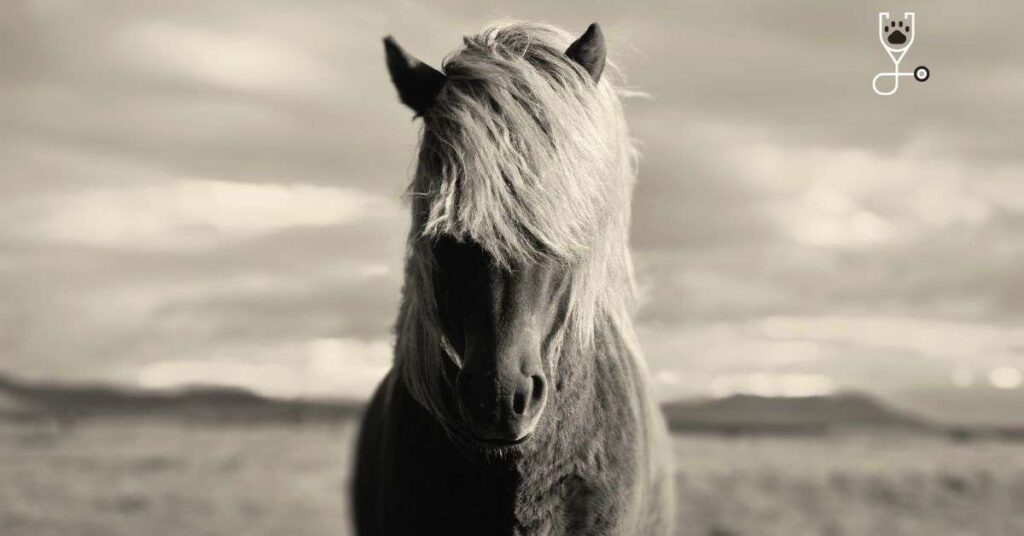
How Do You Calm a Nervous Horse?
Training a horse is both an art and a science. It requires a deep understanding of animal behavior, as well as a gentle touch and a firm hand. There is no one-size-fits-all approach to horse training, as each horse is unique and will respond differently to different methods.
However, there are some basic principles that all trainers should follow. First and foremost, horses should be trained with patience and respect. Training sessions should be positive experiences for both the horse and the trainer, with clear rules and consistent rewards. In addition, it is important to remember that horses are intelligent creatures who are capable of learning complex tasks.
With the right approach, almost any horse can be trained to perform tricks, compete in races, or simply obey simple commands. Although it takes time and dedication to become a skilled trainer, the rewards of seeing a horse reach its full potential are more than worth the effort.
Learn More About Horse: The Ultimate Guide To Ownership & Care
Nervous Horses
If you work with or ride horses long enough, you’re bound to encounter a nervous horse at some point. These animals can be tough to ride and manage, but there are things you can do to help settle them down.
First, it’s important to understand what causes horses to become nervous in the first place. It could be due to fear of something they’ve experienced in the past, or it might be a reaction to new surroundings or situations.
Once you know what’s triggering the horse’s nerves, you can start taking steps to help them feel more comfortable and relaxed.
This might involve gradually exposing them to the source of their fear or anxiety, desensitizing them through training, or providing them with a calm environment where they feel safe. With patience and perseverance, you can help a nervous horse overcome their fears and enjoy a more relaxed and enjoyable life.
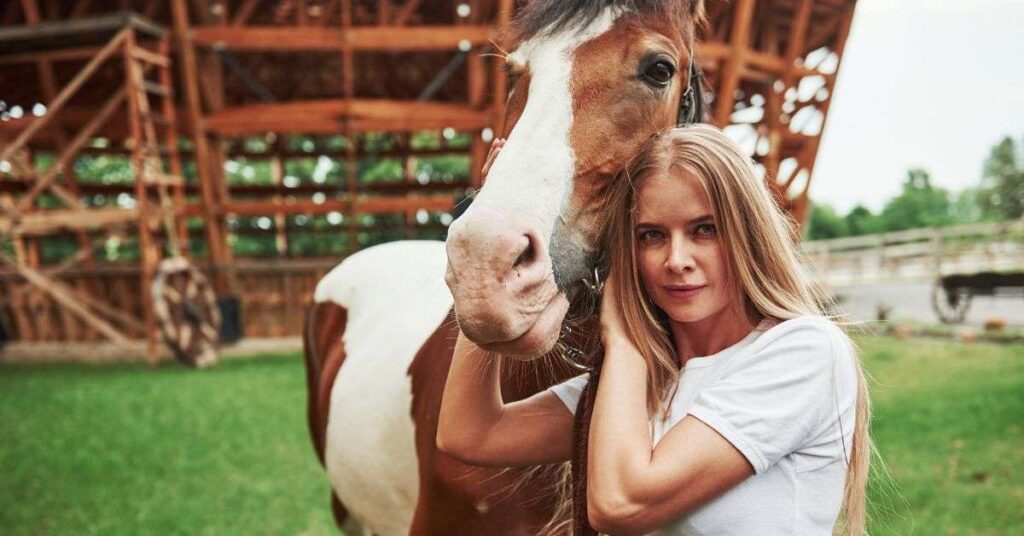
Horse Behavior
If you want to be an effective horse trainer, it is essential that you have a good understanding of horse behavior. After all, horses are not humans and they do not think as we do. In order to train a horse effectively, you need to be able to think like a horse.
This means understanding how horses think in different situations. For example, a horse that is afraid of heights is not going to respond well to training that involves being ridden up a hill. On the other hand, a horse that is attracted to treats is likely to be more responsive to positive reinforcement.
By understanding how horses think, you can tailor your training methods to the individual horse and improve your chances of success.
Learn More: Social Behaviors of Wild and Domestic Horses
Body Language
One way to assess horse behavior is to learn to understand horse body language. Most nervous horses are easy to spot, as they will often exhibit telltale signs of stress, such as pacing, pawing at the ground, or even sweating. However, it’s important to remember that not all horses react the same way to stressful situations. Some may become panicked and dangerous, while others may simply freeze in place. That’s why it’s so important for anyone who works with horses to be able to read their body language. By understanding what a horse is trying to communicate, you can better assess its emotional state and take steps to mitigate any potential problems.
Horse Feed
There are many potential causes of a horse’s nervousness, and poor-quality feed is one of them. Horses are herbivores, and their digestive system is designed to deal with a diet of grass and hay. When they are fed grains and other processed foods, it can cause imbalances in their system that lead to anxiety and stress. In addition, many commercial feeds contain additives that can further upset the delicate balance of a horse’s gut.
As a result, it’s important to be aware of the ingredients in your horse’s feed and to make sure that they are getting the nutrients they need to stay calm and healthy.
Read More: How to Stop Wood Chewing in Horses
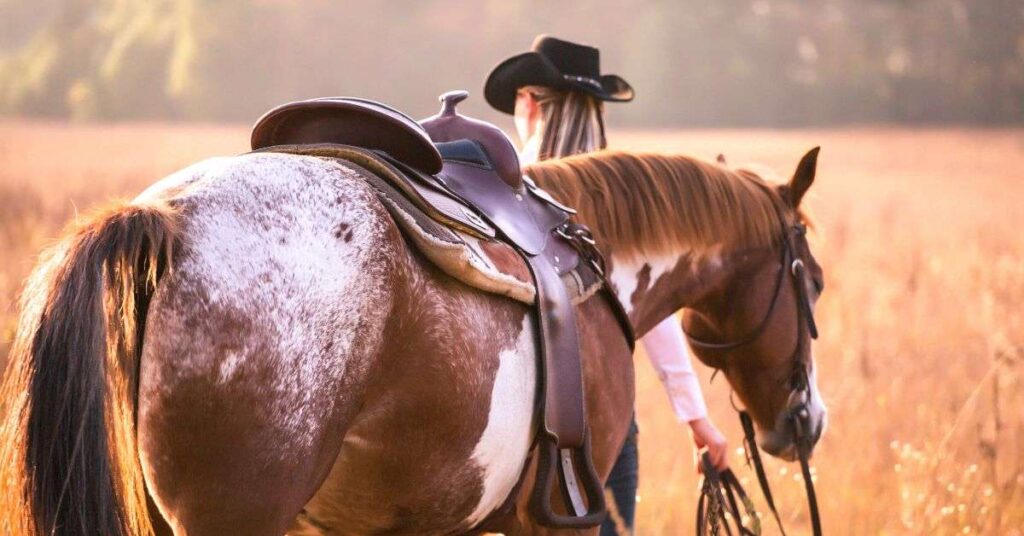
Horse Calming Supplements
There are a variety of supplements on the market that claim to help calm horses. While some of these products may be effective, it’s important to remember that not all of them are created equal. Some contain ingredients that can actually be harmful to horses, so it’s important to do your research before giving any supplement to your horse.
If you decide to give your horse a calming supplement, always follow the directions on the label and start with the lowest possible dose. If you have any concerns about the safety of a particular product, consult with your veterinarian before giving it to your horse.
Training
One of the best ways to help a nervous horse is through training. By teaching your horse how to respond calmly and confidently to different situations, you can help them overcome their fears and learn to enjoy a more relaxed lifestyle.
There are many different training methods that can be used to help nervous horses, and the best approach will vary depending on the individual horse. However, some common techniques include desensitization, positive reinforcement, and counter-conditioning.
Learn More: 10 Most Common Ways You Can Be Hurt By a Horse
How to Calm a Nervous Horse
There are a number of methods you can use to calm a nervous horse. The most important thing is to remain calm and avoid any sudden movements that might startle the animal. Here are a few other tips:
- Talk to the horse in a soft, soothing voice.
- Groom the horse gently with a brush or your hand.
- Offer the horse a treat, such as a carrot or an apple.
- Walk the horse around in circles or figure eights to help them relax.
- Stand next to the horse and let them get used to your presence.
With patience and consistency, you can help a nervous horse learn to trust and feel comfortable around people. Just remember to take things slowly and never force the animal to do anything it is not comfortable with.
